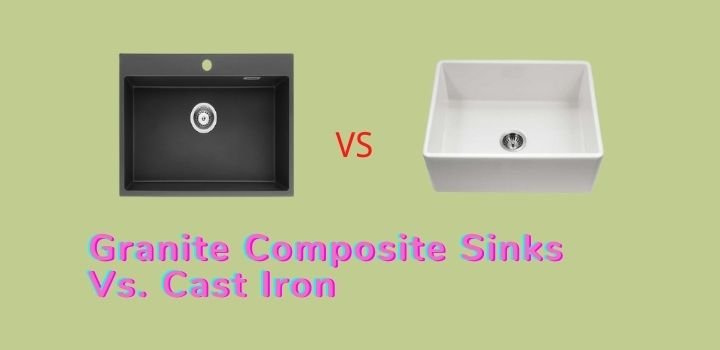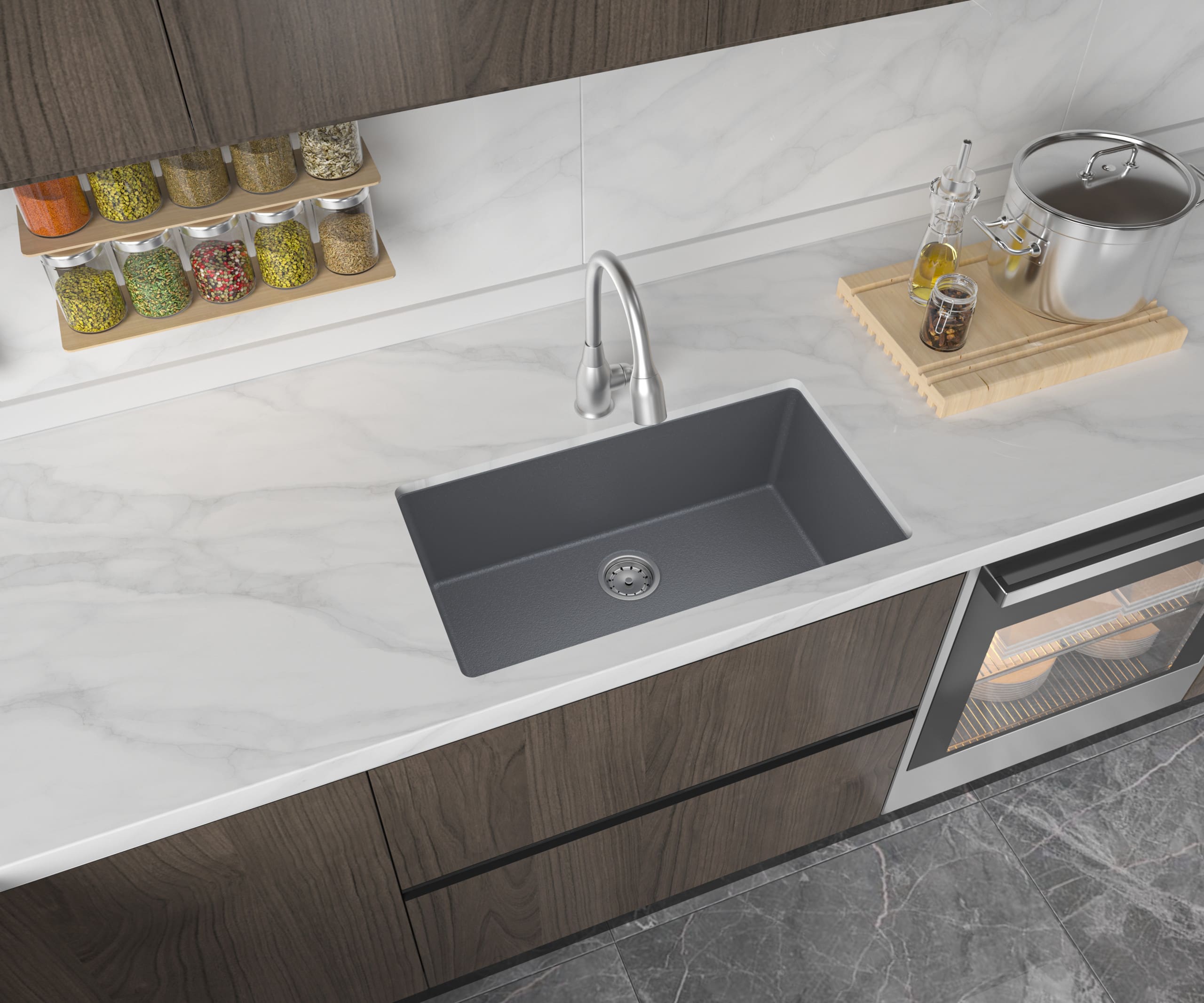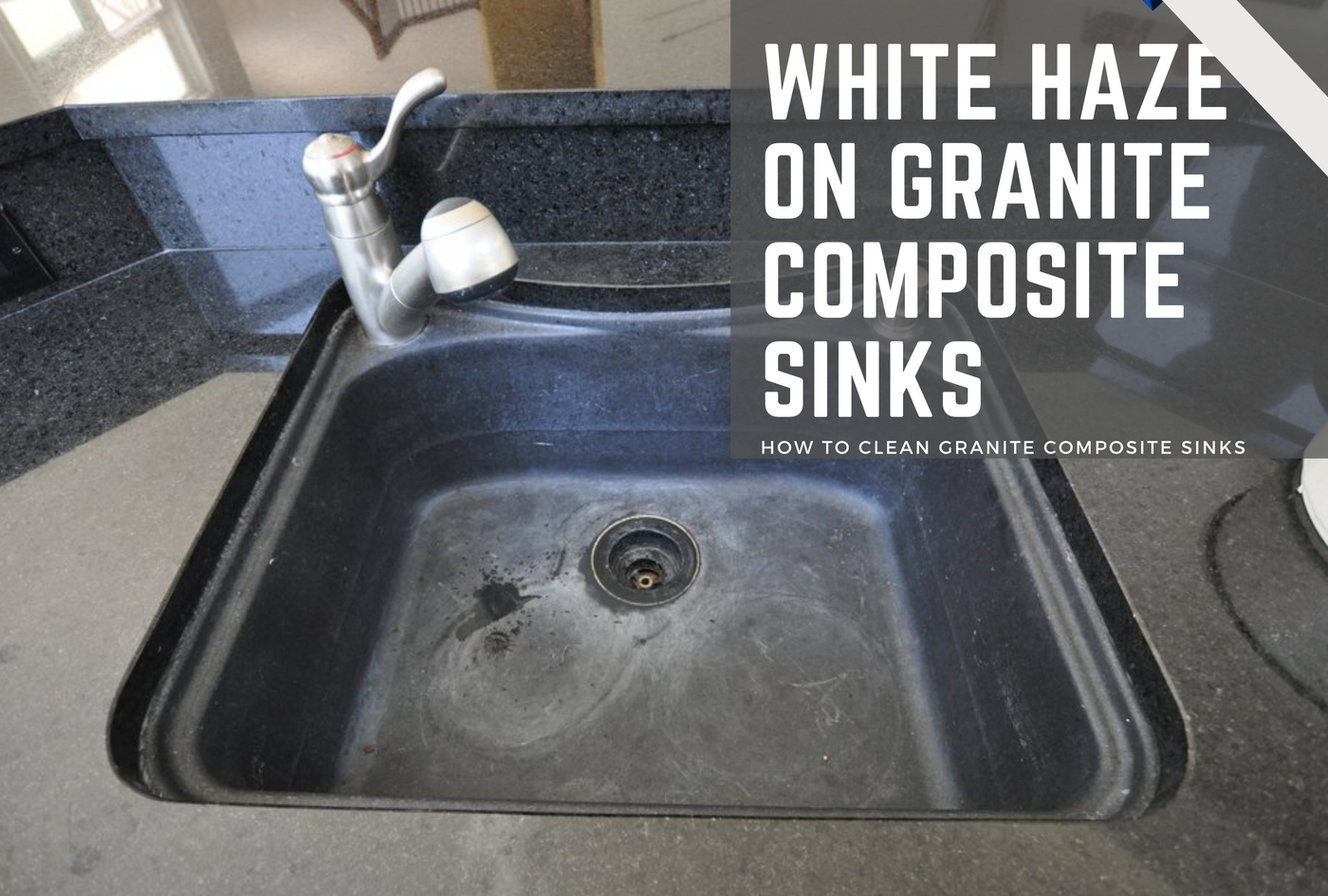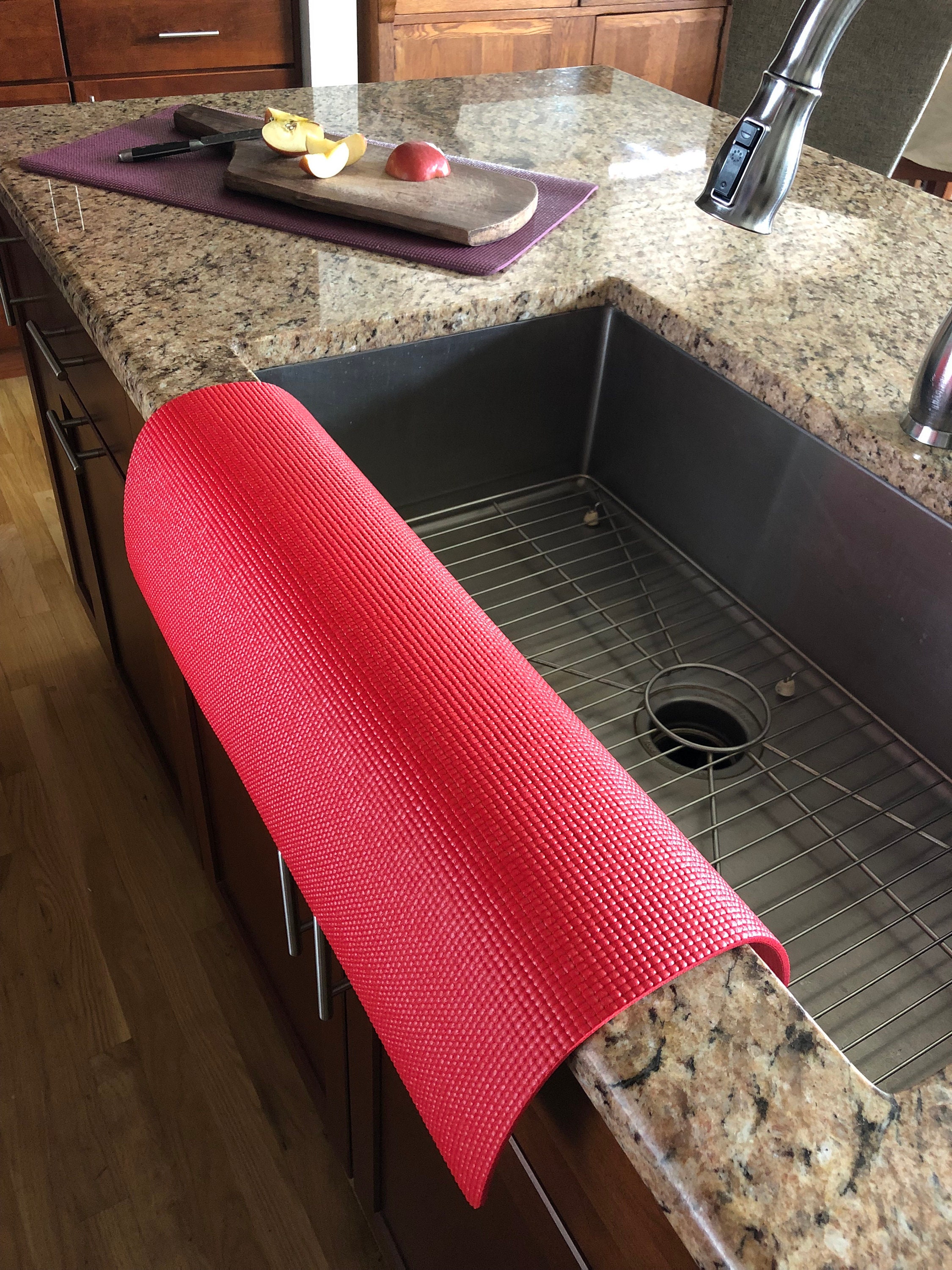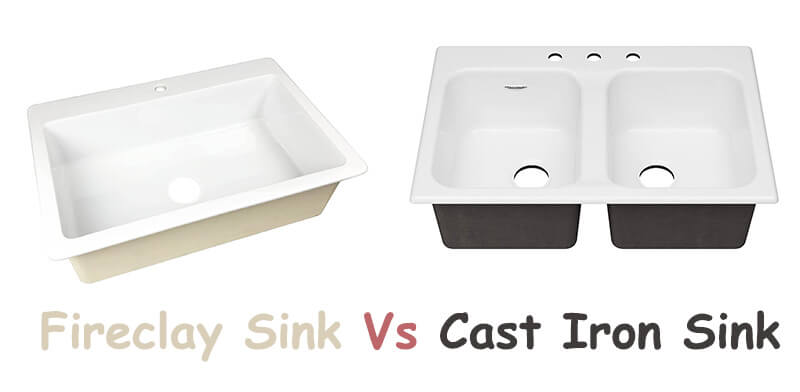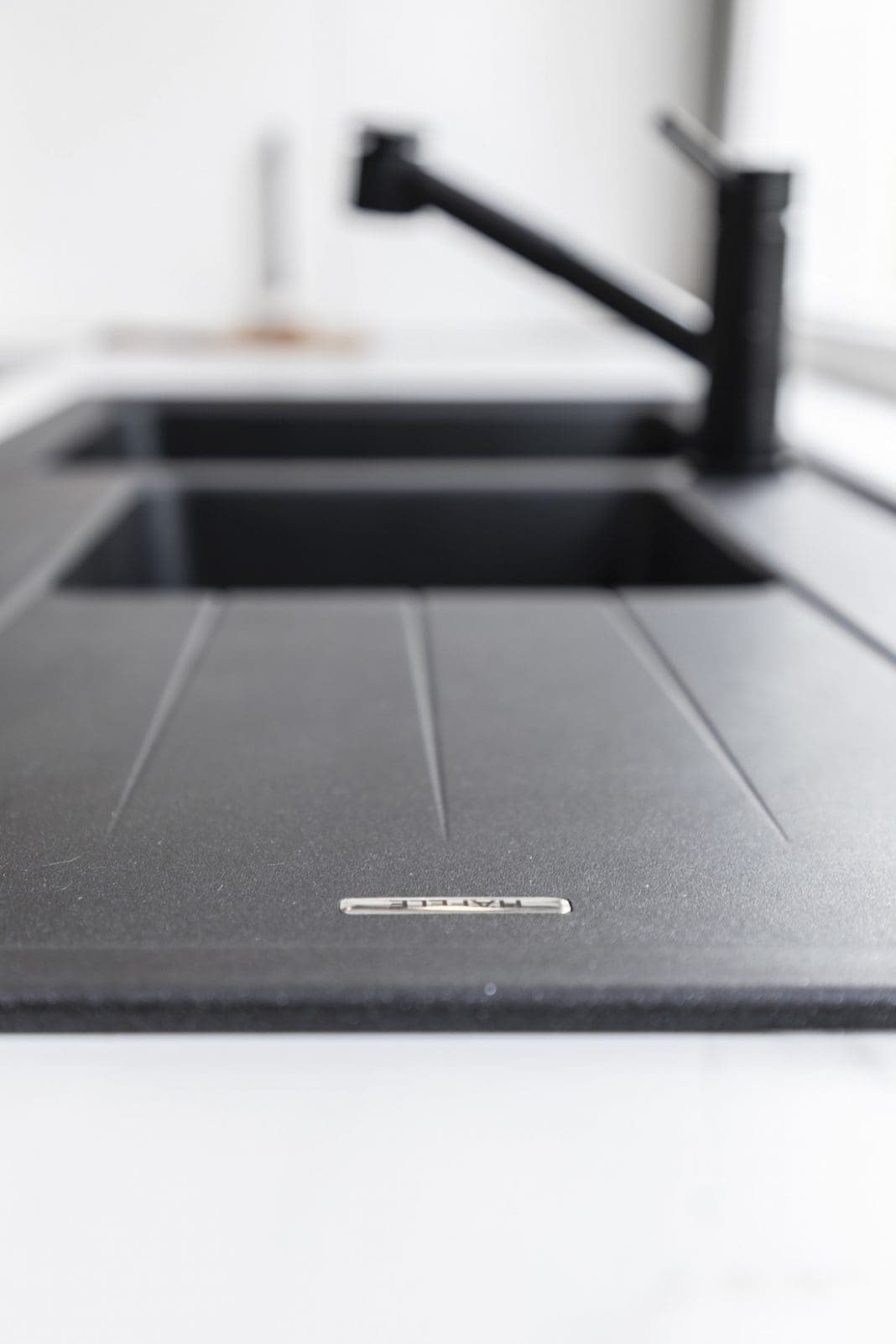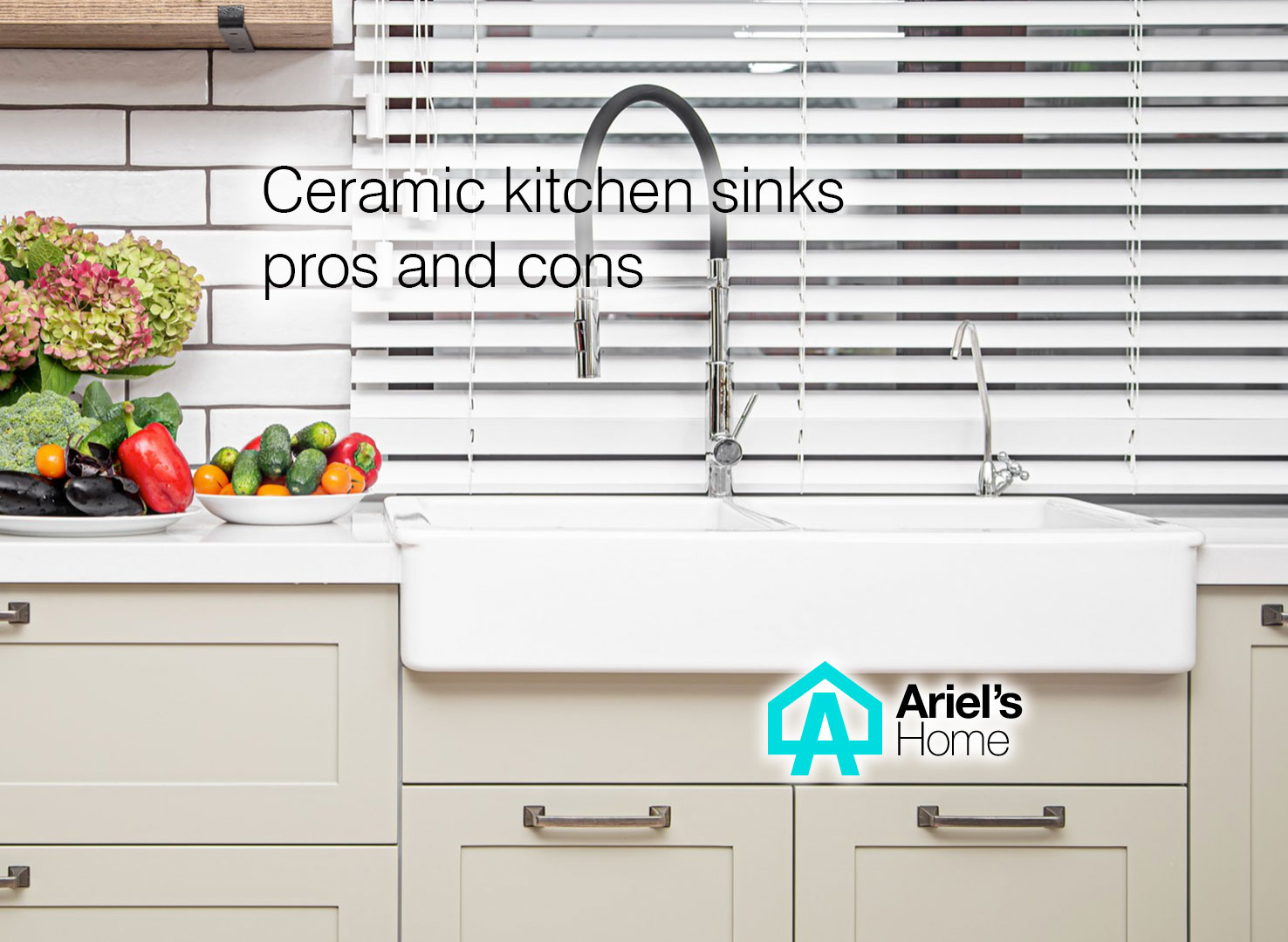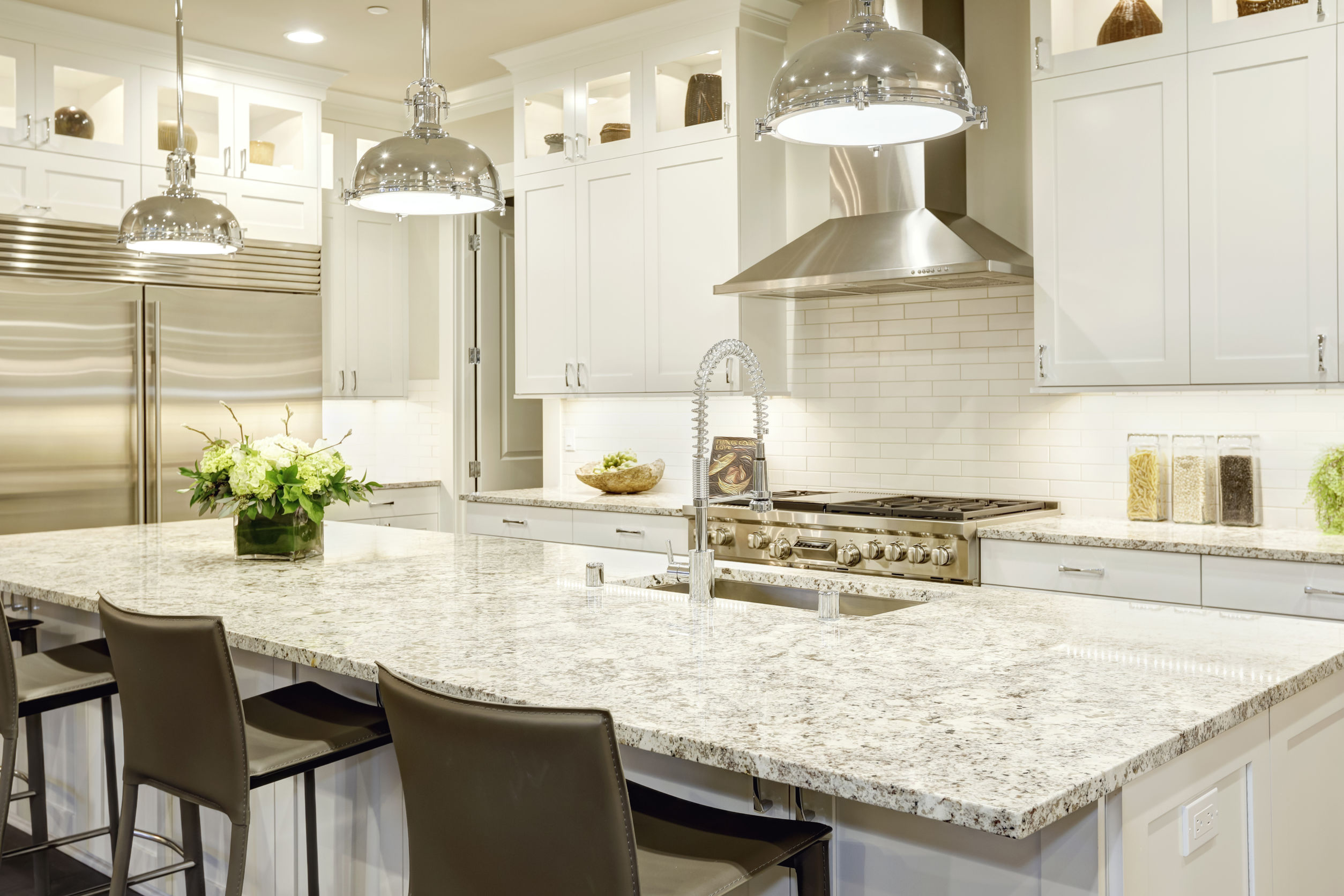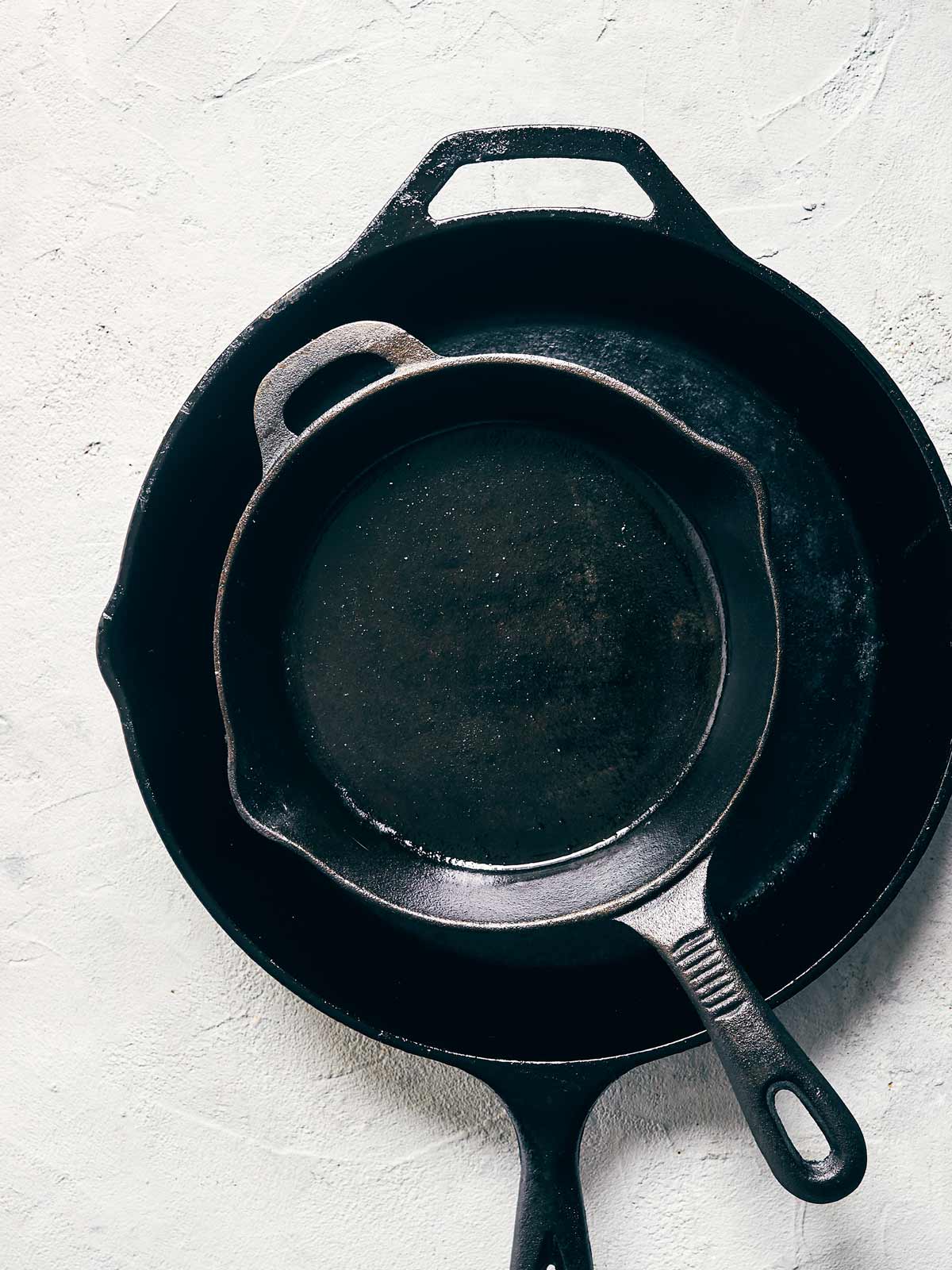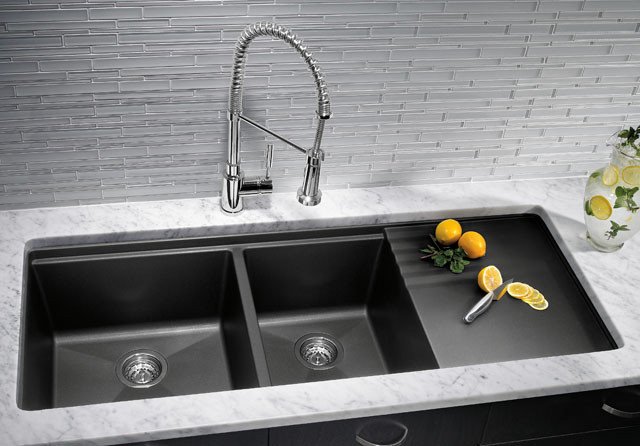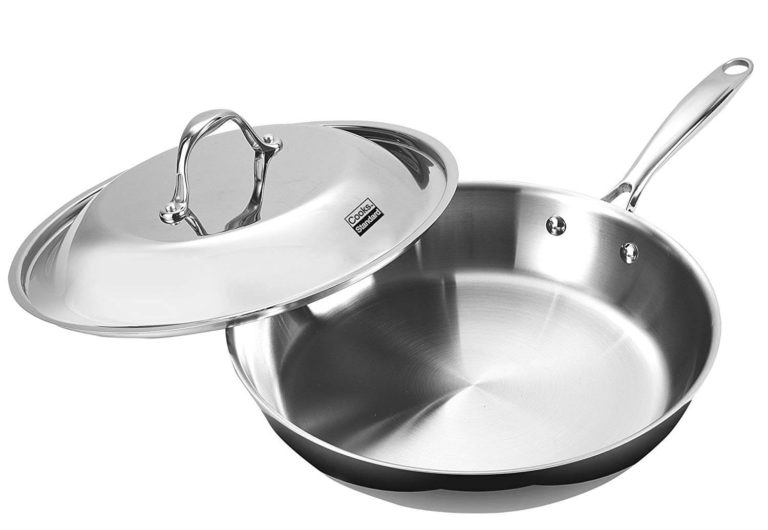When it comes to choosing the perfect kitchen sink, two materials often come to mind: cast iron and granite. Both have their own unique set of qualities and advantages, making it difficult to determine which one is better. To help you make an informed decision, we have prepared a detailed comparison of cast iron and granite kitchen sinks. Read on to find out which one is the right fit for your kitchen.Cast Iron vs. Granite Kitchen Sinks: A Detailed Comparison
Before we dive into the details, let's address the elephant in the room – which material is better? The truth is, it ultimately depends on your personal preferences and needs. Both cast iron and granite have their own strengths and weaknesses, and it's important to consider them carefully before making a decision.Cast Iron vs. Granite Kitchen Sinks: Which is Better?
Cast Iron Sinks: Cast iron sinks have been a popular choice for decades due to their durability and classic look. They are made by pouring molten iron into a mold and then coating it with a layer of enamel. This results in a glossy and smooth surface that is resistant to scratches and stains. However, cast iron sinks can be heavy and require extra support during installation. They are also prone to chipping and can be more expensive than other materials. Granite Sinks: Granite sinks, on the other hand, are made from a combination of granite stone and resin. This makes them extremely durable and resistant to scratches, stains, and heat. They are also lighter than cast iron sinks, making them easier to install. However, they can be more expensive than other materials and may require regular sealing to maintain their shine.Cast Iron vs. Granite Kitchen Sinks: Pros and Cons
When it comes to durability, both cast iron and granite sinks are known to last for decades. Cast iron sinks are extremely sturdy and can withstand heavy use without showing signs of wear and tear. However, they are prone to chipping and may require frequent re-enameling to maintain their appearance. On the other hand, granite sinks are highly resistant to scratches and stains, making them a great choice for busy kitchens. They also require minimal maintenance, with occasional sealing to prevent watermarks and maintain their shine.Cast Iron vs. Granite Kitchen Sinks: Durability and Maintenance
When it comes to cost, cast iron sinks are generally more expensive than granite sinks. This is due to the labor-intensive process of creating and enameling the sink. Granite sinks, on the other hand, are made from a mixture of natural materials and resin, making them a more affordable option. However, prices can vary depending on the brand and style, so it's best to compare prices for both materials before making a decision.Cast Iron vs. Granite Kitchen Sinks: Cost Comparison
One of the biggest factors to consider when choosing a kitchen sink is the design and style options available. Cast iron sinks are known for their classic and traditional look, making them a popular choice for farmhouse or vintage style kitchens. They also come in a variety of colors, including white, black, and even bright hues like red and blue. Granite sinks, on the other hand, have a more modern and sleek appearance, making them a great fit for contemporary kitchens. They also come in a range of colors and patterns, with popular choices being black, white, and grey.Cast Iron vs. Granite Kitchen Sinks: Design and Style Options
Both cast iron and granite sinks are known for their heat and stain resistance, but granite sinks take the lead in this category. Due to their composition, granite sinks can withstand high temperatures and are less likely to get damaged by hot pots and pans. They are also naturally resistant to stains, making them a great choice for busy kitchens. Cast iron sinks, on the other hand, can be damaged by extreme heat and may require a trivet or protective mat for added protection.Cast Iron vs. Granite Kitchen Sinks: Heat and Stain Resistance
When it comes to installation, granite sinks are generally easier to work with due to their lighter weight. They can be installed undermount or drop-in style, making them a versatile option for any kitchen layout. Cast iron sinks, on the other hand, can be more challenging to install due to their weight and may require additional support. They also come in fewer installation options, mainly drop-in style.Cast Iron vs. Granite Kitchen Sinks: Installation and Compatibility
For those looking to make an eco-friendly choice, granite sinks are the better option. They are made from natural materials and can be recycled at the end of their lifespan. Cast iron sinks, on the other hand, require a significant amount of energy to produce and may not be as environmentally friendly.Cast Iron vs. Granite Kitchen Sinks: Environmental Impact
After considering all the factors, it's clear that both cast iron and granite kitchen sinks have their own set of advantages and disadvantages. It ultimately comes down to your personal preferences and needs. If you prefer a classic and traditional look and don't mind a heavier and more expensive option, cast iron may be the right choice for you. If you want a durable and low-maintenance sink with a modern and sleek appearance, then granite is the way to go. Whichever material you choose, make sure to do your research and compare prices to find the perfect kitchen sink for your home.Cast Iron vs. Granite Kitchen Sinks: Which is Right for You?
Why Granite Kitchen Sinks are the Superior Choice
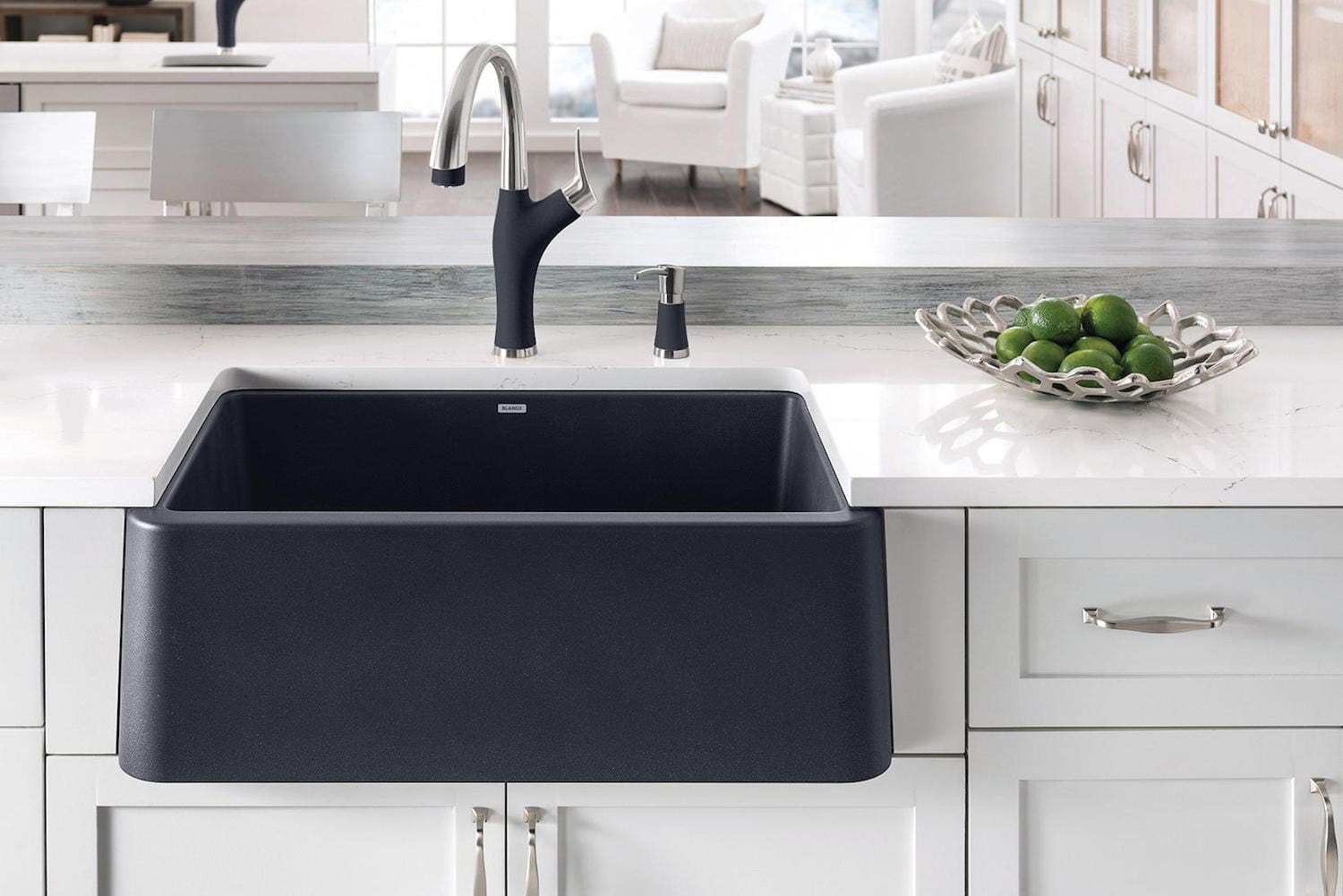
The Benefits of Choosing Granite Over Cast Iron
 When it comes to designing your dream kitchen, the sink is often an overlooked feature. However, the sink is an essential component in any kitchen and can greatly impact the overall functionality and style of the space. Two popular options for kitchen sinks are cast iron and granite. While both have their own unique qualities, granite sinks have proven to be the superior choice for many homeowners. Here are some reasons why you should consider a granite kitchen sink for your home.
Durability
Granite sinks are known for their strength and durability. Made from natural stone, granite is a highly durable material that can withstand heavy use and resist scratches and stains. This makes it an ideal choice for busy kitchens that see a lot of daily activity. Cast iron sinks, on the other hand, can chip and scratch easily, compromising their appearance and functionality over time.
Low Maintenance
Granite sinks are incredibly low maintenance, making them a popular choice for busy homeowners. Unlike cast iron sinks, which require regular cleaning and delicate care to prevent damage, granite sinks are easy to clean and maintain. They are also resistant to heat, so you can place hot pots and pans directly in the sink without worrying about damaging it.
Customization
Granite sinks offer a wide range of customization options, making them a great choice for those looking to personalize their kitchen. Granite is available in a variety of colors and patterns, so you can choose a sink that complements your kitchen design and adds a unique touch to the space. Cast iron sinks, on the other hand, are limited in terms of customization and are typically only available in a few colors.
Aesthetics
In terms of aesthetics, granite sinks are unmatched. The natural stone material adds a touch of elegance and luxury to any kitchen. With its unique patterns and colors, a granite sink can become the focal point of the room and elevate the overall design. Cast iron sinks, while classic in appearance, may not offer the same level of style and sophistication as a granite sink.
In conclusion, while cast iron sinks have been a popular choice for many years, granite sinks offer a range of benefits that make them the superior choice for modern kitchens. From durability and low maintenance to customization and aesthetics, granite sinks have it all. So, when designing your dream kitchen, consider the many advantages of a granite kitchen sink.
When it comes to designing your dream kitchen, the sink is often an overlooked feature. However, the sink is an essential component in any kitchen and can greatly impact the overall functionality and style of the space. Two popular options for kitchen sinks are cast iron and granite. While both have their own unique qualities, granite sinks have proven to be the superior choice for many homeowners. Here are some reasons why you should consider a granite kitchen sink for your home.
Durability
Granite sinks are known for their strength and durability. Made from natural stone, granite is a highly durable material that can withstand heavy use and resist scratches and stains. This makes it an ideal choice for busy kitchens that see a lot of daily activity. Cast iron sinks, on the other hand, can chip and scratch easily, compromising their appearance and functionality over time.
Low Maintenance
Granite sinks are incredibly low maintenance, making them a popular choice for busy homeowners. Unlike cast iron sinks, which require regular cleaning and delicate care to prevent damage, granite sinks are easy to clean and maintain. They are also resistant to heat, so you can place hot pots and pans directly in the sink without worrying about damaging it.
Customization
Granite sinks offer a wide range of customization options, making them a great choice for those looking to personalize their kitchen. Granite is available in a variety of colors and patterns, so you can choose a sink that complements your kitchen design and adds a unique touch to the space. Cast iron sinks, on the other hand, are limited in terms of customization and are typically only available in a few colors.
Aesthetics
In terms of aesthetics, granite sinks are unmatched. The natural stone material adds a touch of elegance and luxury to any kitchen. With its unique patterns and colors, a granite sink can become the focal point of the room and elevate the overall design. Cast iron sinks, while classic in appearance, may not offer the same level of style and sophistication as a granite sink.
In conclusion, while cast iron sinks have been a popular choice for many years, granite sinks offer a range of benefits that make them the superior choice for modern kitchens. From durability and low maintenance to customization and aesthetics, granite sinks have it all. So, when designing your dream kitchen, consider the many advantages of a granite kitchen sink.



